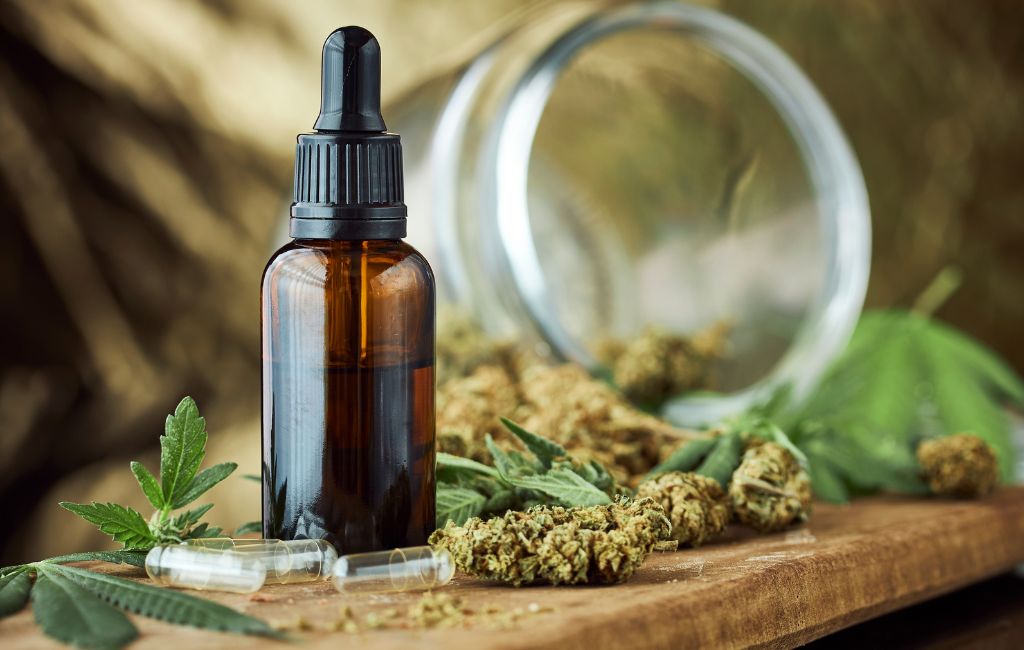Nature’s Secret: THCa Flower Explained
The world of cannabis is vast and ever-evolving, with new discoveries and innovations emerging regularly. One such intriguing development is the indacloud.co THCa flower, a product that has captured the attention of enthusiasts and researchers alike. This article delves into the intricacies of THCa, exploring its properties, benefits, and potential applications.
Understanding THCa: The Basics
THCa, or tetrahydrocannabinolic acid, is a non-psychoactive cannabinoid found in raw cannabis plants. Unlike THC, which is known for its psychoactive effects, THCa does not produce a “high” when consumed in its natural state. This distinction makes THCa a subject of interest for those seeking the therapeutic benefits of cannabis without the mind-altering effects.
The Chemical Structure of THCa
THCa is the acidic precursor to THC. When cannabis is exposed to heat through smoking, vaping, or cooking, a process called decarboxylation occurs. This process converts THCa into THC, releasing carbon dioxide and altering its chemical structure. The transformation is what gives THC its psychoactive properties.
Natural Occurrence and Extraction
THCa is abundant in fresh, undried cannabis plants. To preserve its properties, extraction methods such as cold pressing or juicing are employed. These techniques ensure that the THCa remains intact, providing a pure and potent product for consumers.
Potential Benefits of THCa
Research into THCa is still in its early stages, but preliminary findings suggest a range of potential health benefits. Here are some areas where THCa shows promise:
- Anti-inflammatory Properties: Studies indicate that THCa may help reduce inflammation, making it a potential option for those with conditions like arthritis or inflammatory bowel disease.
- Neuroprotective Effects: Early research suggests that THCa could offer neuroprotective benefits, potentially aiding in the treatment of neurodegenerative diseases such as Alzheimer’s and Parkinson’s.
- Antiemetic Potential: THCa may help alleviate nausea and vomiting, which could be beneficial for patients undergoing chemotherapy or those with chronic gastrointestinal issues.
- Appetite Stimulation: Similar to THC, THCa might stimulate appetite, offering support for individuals dealing with appetite loss due to medical conditions or treatments.
THCa Flower: A Unique Offering
The THCa flower is a product that retains the natural properties of the cannabis plant. By preserving the THCa content, consumers can experience the benefits without the psychoactive effects associated with THC. This makes it an appealing option for those seeking a more holistic approach to cannabis consumption.
Consumption Methods
There are several ways to consume THCa flower, each offering a unique experience:
- Raw Consumption: Eating raw cannabis leaves or flowers is one way to ingest THCa. This method is popular among those who prefer a natural approach.
- Juicing: Juicing fresh cannabis leaves and flowers allows for easy consumption of THCa, often mixed with other fruits and vegetables for added flavor and nutrients.
- Tinctures and Oils: Extracting THCa into tinctures or oils provides a concentrated form that can be added to food or beverages.
Case Studies and Research
Several studies have explored the potential of THCa, providing insights into its effects and applications. For instance, a study published in the British Journal of Pharmacology highlighted THCa’s anti-inflammatory properties, suggesting its potential in treating inflammatory conditions. Another research project conducted by the University of Guelph examined THCa’s neuroprotective effects, indicating its promise in neurodegenerative disease management.
Legal Considerations
The legal status of THCa varies by region, often depending on local cannabis laws. In some areas, THCa is classified similarly to THC, while in others, it is considered a separate entity. Consumers should familiarize themselves with local regulations before purchasing or consuming THCa products.
Conclusion
THCa flower represents a fascinating aspect of cannabis science, offering potential therapeutic benefits without the psychoactive effects of THC. As research continues, the understanding of THCa’s properties and applications will likely expand, providing new opportunities for consumers and medical professionals alike. Whether for its anti-inflammatory, neuroprotective, or antiemetic properties, THCa holds promise as a natural alternative in the world of cannabis.
